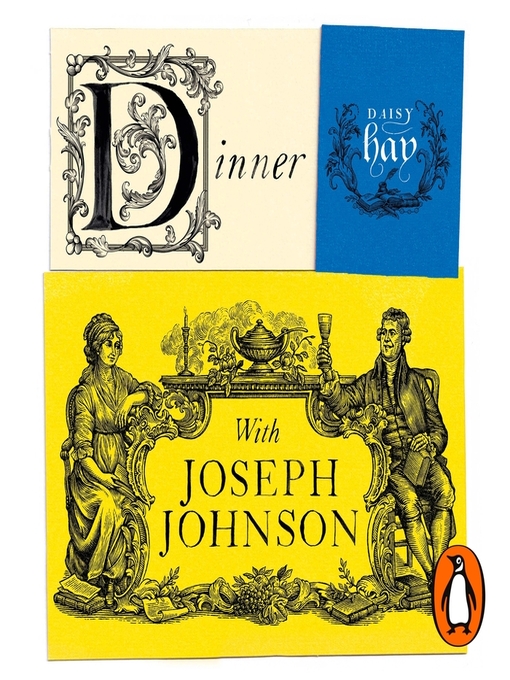Brought to you by Penguin.
A portrait of a radical age via the writers who gather around a publisher's dining table - from William Wordsworth to Mary Wollstonecraft
Once a week, in late eighteenth-century London, writers of contrasting politics and personalities gathered around a dining table. The veal and boiled vegetables on offer at 72 St Pauls Churchyard may have been unappetising but the company was convivial and the conversation was at once brilliant, unpredictable and profound. The host was Joseph Johnson, publisher and bookseller: a man at the heart of literary life.
Johnson was joined at dinner by a shifting constellation of extraordinary people who, during the period he was in business, remade the literary world. His guests included the Swiss artist Henry Fuseli, his chief engraver William Blake and scientists Joseph Priestley and Benjamin Franklin. William Wordsworth and Samuel Coleridge sat beside a group of remarkable women including the poet Anna Barbauld, the novelist Maria Edgeworth and, her voice ringing out above all others, the philosopher Mary Wollstonecraft.
Johnson's years as a maker of books, between 1760 and 1809, saw profound political, social, cultural and religious shifts in Britain and abroad. Several of his authors were involved in the struggles for reform: they pioneered revolutions in medical treatment and scientific enquiry; they proclaimed the rights of women and children; they charted the evolution of Britain's relationship first with America and then with Europe.
Number 72 was a refuge for these writers and by continuing to publish their work, Johnson made their voices heard even when external forces conspired to silence them. In this remarkable portrait of a revolutionary age, Daisy Hay captures a changing nation through the connected stories of the men and women who wrote it into being, and whose ideas still influence us today.
© Daisy Hay 2022 (P) Penguin Audio 2022
- New eBook additions
- New eBook additions for Kids
- New eBook additions for Teens
- Most popular
- Most popular for Kids
- Most popular for Teens
- Available Now
- Available Now for Kids
- Available Now for Teens
- Book Club 2025-2026: Guaranteed Available : Karapu Pukapuka: Wātea Mārika 2025-2026
- Classic Literature Book Club : Guaranteed Available
- Travel Club 2025-2026: Guaranteed Available
- Reese's Pieces
- See all ebooks collections
- New eAudiobook additions
- New eAudiobook additions for Kids
- New eAudiobook additions for Teens
- Most popular eAudiobooks
- Most popular eAudiobooks for Kids
- Most popular eAudiobooks for Teens
- Available now on eAudio
- Available Now on eAudio for Kids
- Available Now on eAudio for Teens
- AudioBook Club 2025-2026: Guaranteed Available
- Classic "Reads" AudioBook Club : Guaranteed Available
- Children's AudioBook Club 2025-2026: Guaranteed Available
- See all audiobooks collections
- Ngā pukapuka i te reo Māori : Books in the Māori Language
- Tusi Samoa : Samoan Books
- Ngaahi tohi ʻi he lea faka-Tongá : Books in Tongan
- किताबें हिंदी में Kitaaben hindee mein : Books in Hindi
- 中文书籍 Zhōngwén shūjí : Books in Chinese
- 中文杂志 Zhōngwén zázhì : Magazines in Chinese
- Buugaag af-soomaali ku qoran : Books in Somali
- Livres en français : Books in French
- Magazines en français : Magazines in French
- Bücher in deutscher Sprache : Books in German
- Zeitschriften in deutscher Sprache : Magazines in German
- Mga libro ma Filipino : Books in Tagalog
- Boeke in Afrikaans : Books in Afrikaans
- See all language collections collections

